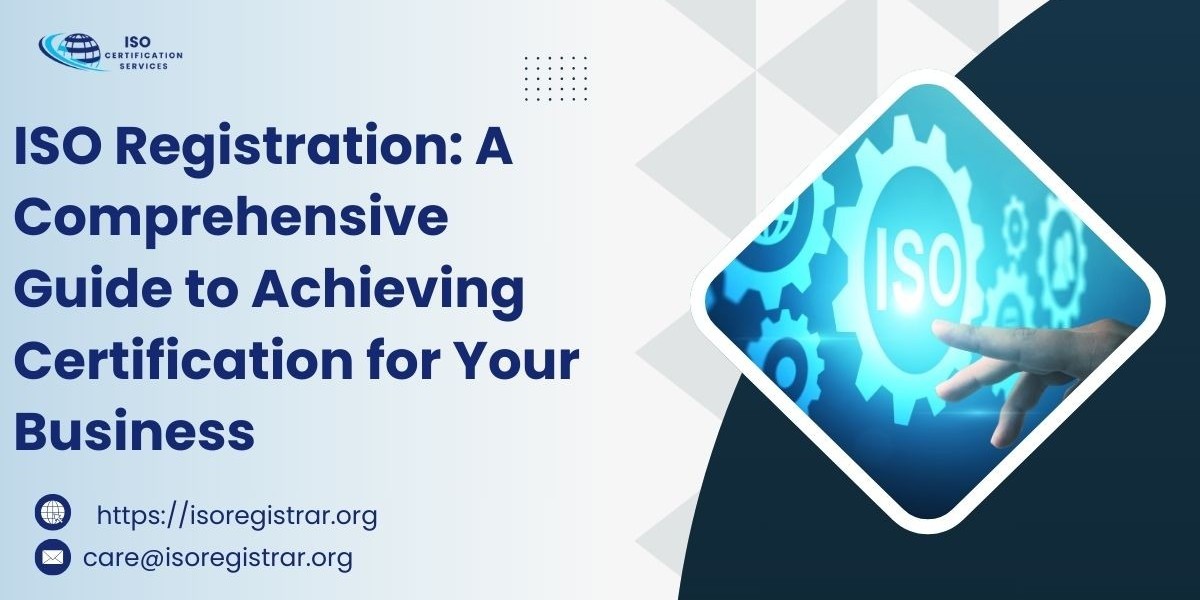ISO certification is one of the most respected and internationally recognized ways for businesses to demonstrate their commitment to quality, efficiency, and continuous improvement. The International Organization for Standardization (ISO) has set up standards across various sectors and industries, ensuring that businesses comply with best practices, ensuring quality, safety, and efficiency.
This comprehensive guide covers everything you need to know about ISO registration: its benefits, the certification process, the types of ISO certifications, and how to achieve ISO certification for your business.
What is ISO Certification?
ISO certification is an official recognition given to companies that meet specific standards set by the International Organization for Standardization (ISO). ISO is an independent, non-governmental international organization that publishes standards for various industries to ensure quality, safety, and efficiency in processes, products, and services.
ISO certifications are awarded after an organization proves it adheres to the stringent guidelines established by ISO in different areas such as quality management, environmental sustainability, information security, and health and safety.
Why is ISO Registration Important for Your Business?
Obtaining ISO certification can greatly benefit your business in a number of ways. Here’s why ISO registration is important:
- Enhanced Credibility and Reputation: ISO certification is internationally recognized. It assures customers and stakeholders that your company adheres to industry best practices and standards. This can increase trust and improve your business reputation.
- Improved Operational Efficiency: ISO standards help streamline business processes, improving efficiency and reducing errors. By identifying inefficiencies and implementing structured approaches, ISO certification can lead to cost savings and better use of resources.
- Access to New Markets: Many clients and businesses, especially large corporations and government agencies, require ISO certification when working with suppliers. Having an ISO certificate opens the door to new markets and opportunities, both locally and internationally.
- Customer Satisfaction: ISO certification places a strong emphasis on quality, customer satisfaction, and continuous improvement, helping you meet or exceed customer expectations.
- Legal Compliance: Some industries are legally required to meet specific ISO standards. Certification ensures that your business complies with relevant laws and regulations, mitigating legal risks.
Types of ISO Certifications
ISO offers a variety of certifications that cover different aspects of business operations. Here are some of the most common ISO certifications:
- ISO 9001 – Quality Management System (QMS): ISO 9001 is one of the most widely recognized and implemented standards. It focuses on ensuring that your products or services meet customer requirements and that quality is continuously improved.
- ISO 14001 – Environmental Management System (EMS): ISO 14001 focuses on the environmental impact of your business. It helps businesses minimize waste, reduce pollution, and improve their environmental performance.
- ISO 45001 – Occupational Health and Safety (OH&S): ISO 45001 is a standard focused on improving health and safety standards in the workplace. It ensures that businesses provide a safe environment for employees, reducing accidents and injuries.
- ISO 27001 – Information Security Management System (ISMS): ISO 27001 ensures that your business protects sensitive information. It focuses on preventing data breaches and enhancing information security processes.
- ISO 22000 – Food Safety Management System (FSMS): This standard is aimed at organizations in the food industry, ensuring they implement systems for controlling food safety risks at all stages of the supply chain.
Step-by-Step Guide to ISO Registration
The ISO certification process typically involves a series of steps that ensure your organization meets the required standards. Here’s a detailed breakdown of the process:
Choose the Right ISO Standard: Select the ISO standard that fits your business needs and aligns with your goals.
Visit the Certification Portal: Go to the official ISO certification website.
Fill Out the Application Form: Complete the online form, ensuring all details are accurate.
Submit Your Application: Review, submit, and double-check all details.
Payment: After submitting the form, pay the nominal charges.
Certificate Confirmation: A consultant confirms the ISO standard you're applying for.
Receive Your ISO Certificate: Once it’s approved, your ISO certificate will be sent to your registered email.
Benefits of ISO Certification for Your Business
Achieving ISO certification can provide numerous advantages for your business:
- Improved Process Efficiency: ISO helps streamline business processes and operations, making your company more efficient.
- Increased Marketability: ISO certification is an internationally recognized symbol of quality, giving you a competitive edge in the market.
- Customer Loyalty: ISO emphasizes customer satisfaction, which can lead to improved customer relationships and increased loyalty.
- Legal Compliance: Certification ensures that your business complies with relevant laws and regulations, reducing the risk of legal issues.
- Employee Engagement: ISO standards often encourage better communication, increased employee involvement, and improved workplace safety.
ISO Certification and Your Business Growth
ISO certification is more than just a badge of quality—it’s a strategic tool for growth. By aligning your business with internationally recognized standards, you can improve internal processes, deliver better products or services, and open the door to new business opportunities.
Whether you are a startup, a medium-sized business, or a large corporation, ISO certification is a powerful way to differentiate your business in a competitive market and establish long-term success.
NOTE:- Apply for ISO CERTIFICATION 9001 : 2015
Conclusion
ISO certification plays a critical role in helping businesses meet international standards of quality, safety, and efficiency. By following the steps outlined in this guide and preparing properly for certification, your business can achieve ISO status and unlock new opportunities for growth and success.
Whether you’re focused on improving customer satisfaction, reducing costs, or complying with industry regulations, ISO certification offers a structured framework that will help you achieve your business objectives and enhance your reputation in the marketplace.


